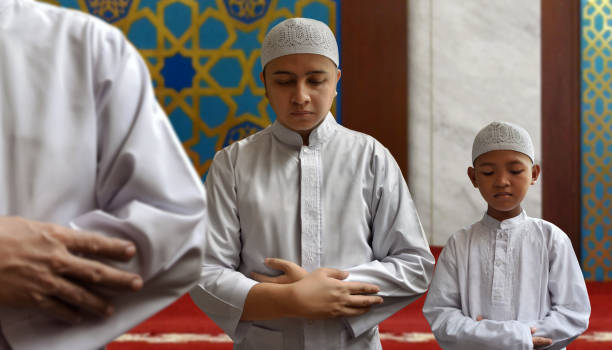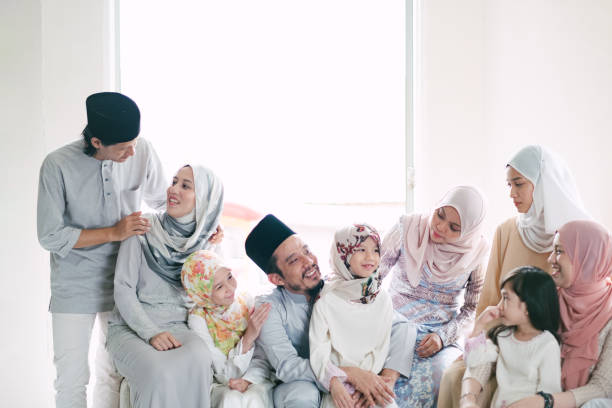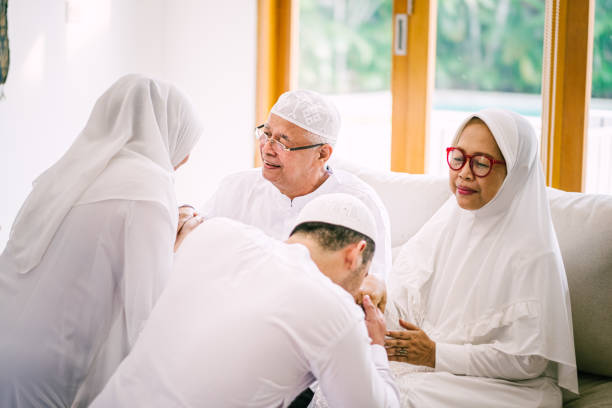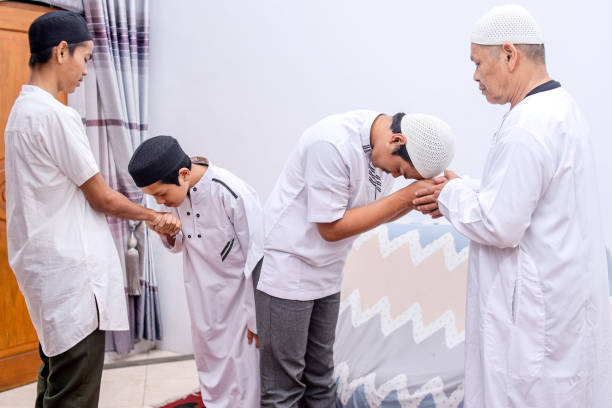Ramadan and Eid al-Fitr Ramadan is a deeply significant time for Muslims across the globe. It’s the ninth month of the Islamic calendar, and it offers a unique opportunity for spiritual growth, self-reflection, and building stronger connections with Allah. Throughout the month, Muslims observe fasting — an act of devotion that goes beyond just abstaining from food and drink. At the end of Ramadan, Muslims celebrate Eid al-Fitr, a festival that marks the conclusion of this sacred month and is filled with joy, prayers, and community gatherings

What Makes Ramadan So Special?
Ramadan is much more than a time for fasting. It’s a month of reflection, spiritual renewal, and self-discipline. The Quran mentions the importance of this month and the obligation for all capable Muslims to fast:
It was in the month of Ramadan that the Qur’an was revealed as guidance for humanity… So any one of you who is present that month should fast
(Quran 2:185)
Fasting during Ramadan is a means to purify oneself spiritually, mentally, and emotionally. It’s a time for Muslims to focus on their relationship with Allah, while also fostering empathy for the less fortunate.

What is Fasting (Sawm)?
Fasting or Sawm during Ramadan is a central practice and one of the Five Pillars of Islam. But it’s not just about avoiding food and drink — it’s about self-restraint in every aspect of life. Muslims fast from dawn until sunset and avoid:
Eating and Drinking: No food or liquid is consumed during daylight hours.
Physical Intimacy: Muslims refrain from sexual activity during the fast.
Negative Actions: This includes staying away from bad language, negative thoughts, and sinful behavior.
The Prophet Muhammad (peace be upon him) said:
“Fasting is a shield, so when one of you is fasting, let them abstain from foul talk and bad behavior.”
This reminds us that fasting isn’t just a physical act, but also an opportunity to purify our hearts and minds.
The Spiritual Benefits of Fasting
Fasting helps Muslims develop patience, humility, and empathy. It allows individuals to disconnect from daily distractions and focus on their relationship with Allah. The experience of hunger and thirst is also a reminder of the struggles that many people face around the world. It fosters a deeper sense of compassion for those who are less fortunate, and encourages charity and generosity.
Suhoor and Iftar: The Bookends of a Fast Suhoor: The Pre-Dawn Meal
Before the day’s fast begins, Muslims eat suhoor, the pre-dawn meal. Suhoor is essential because it gives the body energy to sustain it through the long hours of fasting. It’s not just about eating anything — it’s about choosing foods that will provide sustained energy throughout the day.

Tips for a Healthy Suhoor
- Hydrate well – Drink plenty of water to prevent dehydration.
- Eat complex carbs – Foods like whole grains, oats, and fruits help provide energy throughout the day.
- Avoid heavy, greasy foods – These can make you feel sluggish during the day.
Iftar: Breaking the Fast
When the sun sets, it’s time for iftar, the meal to break the fast. The Prophet Muhammad (PBUH) recommended breaking the fast with dates and water, and this is a tradition many Muslims follow today. After breaking the fast, Muslims typically offer the Maghrib prayer, followed by a communal meal with family and friends.
Common Iftar Foods
Dates
Lentil soup
Salads and fruits
Grilled meats or chicken
Sweets like baklava and kunafa
Iftar is more than just a meal; it’s an opportunity to come together with family, reflect on the day’s fast, and enjoy the company of loved ones.
The Joy of Iftar: Building Community
Iftar gatherings have a special sense of community. It’s a time when families, friends, and neighbors come together to share food and prayers. In many Muslim-majority countries, large public iftar events are organized, where people from different walks of life come together to break their fast in solidarity.
Prayers and Worship During Ramadan
Taraweeh: Special Prayers After Isha
One of the significant practices during Ramadan is Taraweeh — special prayers that are performed after the Isha prayer. During these prayers, Muslims aim to recite the entire Qur’an over the course of the month, and these moments are filled with spiritual reflection and devotion.
Laylat al-Qadr: The Night of Power
Laylat al-Qadr, also known as the Night of Power, is believed to be the night when the Qur’an was revealed to Prophet Muhammad. This night holds immense spiritual value, and it’s believed that prayers made on this night are especially powerful and accepted by Allah.
Key Elements of Laylat al-Qadr:
- Night-long worship – Many Muslims stay awake throughout the night in prayer and reflection.
- Special Supplications (Duas) – Muslims make personal requests for Allah’s mercy and forgiveness.
- Increased Charity – Some Muslims choose to give extra charity on this night, helping those in need.
Eid al-Fitr: The Joyous Celebration
What is Eid al-Fitr?
Eid al-Fitr marks the end of Ramadan and is a time for celebration and thanksgiving. After a month of fasting and spiritual growth, Eid is a day of joy, where Muslims gather for prayer and give thanks to Allah for the strength to complete the fast.
The day begins with the special Eid prayer, a community prayer performed in congregation at mosques or open spaces. After the prayer, there is usually a sermon from the imam, which emphasizes gratitude and the importance of charity.
The Significance of Eid Prayers
Eid prayers are performed in large congregations. It’s a special prayer where Muslims come together, dressed in their finest clothes, to thank Allah for His mercy and blessings. It’s a powerful moment of unity and reflection.
Traditions of Eid: A Day of Joy and Generosity
Eid is not only about prayers; it’s also a time to share the joy with family and friends. Many Muslims engage in the following traditions:
Zakat al-Fitr: A charitable act that involves giving to the less fortunate before the Eid prayer.
Gifts: Children often receive gifts, clothes, and money from family members.
Feasting: After a month of fasting, it’s time to indulge in delicious meals with loved ones.
Celebrating Eid Around the World

Eid celebrations can vary from country to country, but the essence of the day remains the same: joy, family, and gratitude. Some common traditions include:
- Community Gatherings – Public events, such as fairs, festivals, and carnivals, are held in many places.
- Family Feasts – Large meals are shared with family, and traditional foods are served.
- Visiting Relatives – Many Muslims visit family members and friends, strengthening their bonds.
The Spirit of Giving on Eid
Eid also emphasizes the importance of giving. Apart from Zakat al-Fitr, many Muslims choose to give additional charity, contributing to causes such as feeding the poor, supporting orphans, or helping those in need. This reinforces the community spirit and the teachings of Ramadan.
Eid’s Deeper Meaning
While Eid is a day of celebration, it’s also a time to reflect on the spiritual journey of Ramadan. The month of fasting and worship helps Muslims grow closer to Allah and become better versions of themselves. Eid is a reminder of the importance of charity, kindness, and gratitude.
Conclusion:
Ramadan and Eid al-Fitr are not just about fasting and feasting; they are about spiritual growth, community, and reflection. The fast helps Muslims develop patience and empathy, while Eid offers a time for joy, unity, and giving. Together, these occasions remind Muslims of the core values of Islam — compassion, gratitude, and devotion to Allah.

Pingback: The Virtue of Taraweeh Prayer: A Spiritual Journey